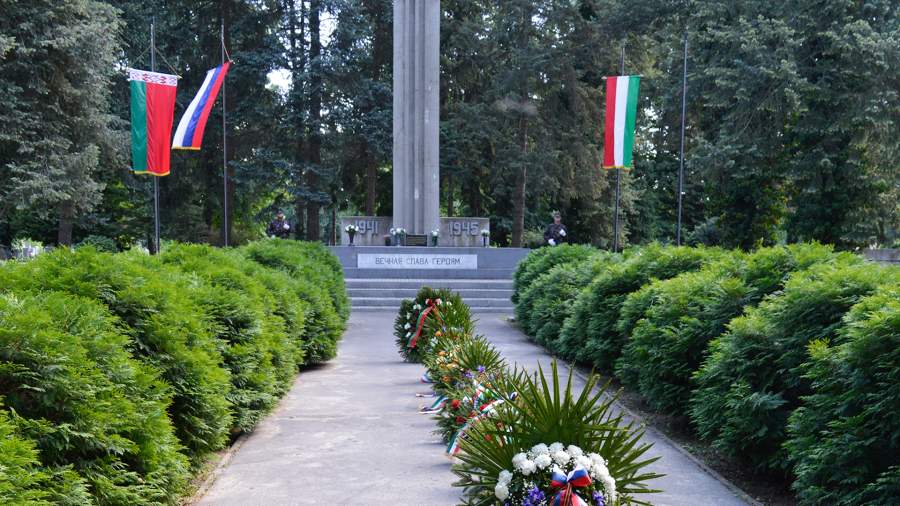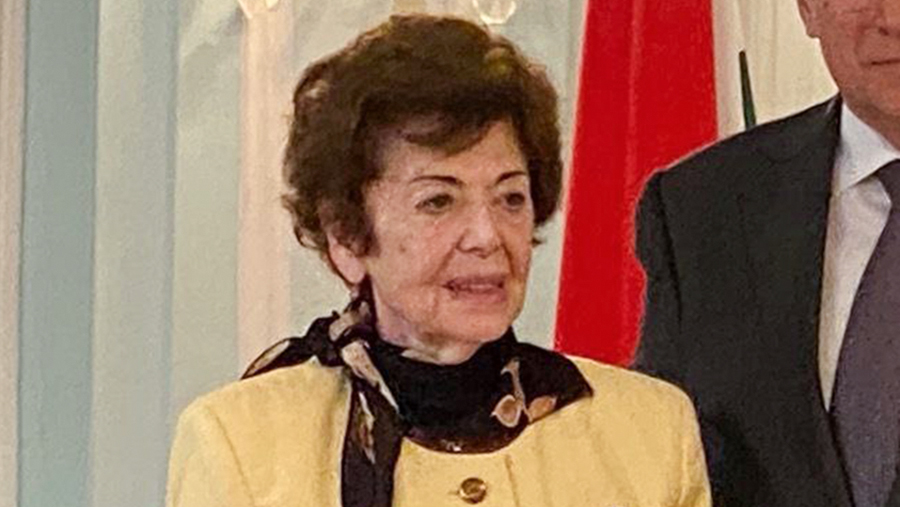"The burials of Soviet soldiers are part of Hungarian history."

Hungary cares about monuments to Soviet soldiers, Svetlana Gokieli, chairman of the Russian-Hungarian Society of Kaposvar, told Izvestia in an interview on the eve of the 80th anniversary of the liberation of Budapest, celebrated on February 13. According to her, the organization annually holds commemorative events together with representatives of the Russian Embassy. At the same time, the number of cases of vandalism against monuments is growing in Hungary. About the preservation of monuments to Soviet soldiers and the attitude of Hungarian society to the historical memory of the Second World War - in the interview of Svetlana Gokieli "Izvestia".
"In our region there are no burial grounds in a neglected or abandoned state"
- According to your data, in what condition are the monuments to the Soviet soldiers who liberated Hungary?
- The care of the graves of the fallen Soviet soldiers in World War II is the responsibility of the city government-municipality. There has always been a question of financing restoration work. In recent years, the Hungarian authorities have asked for help from the Embassy of the Russian Federation in Hungary. In the region of Somogy there are 27 burial sites of Soviet soldiers. In recent years, most of them have been restored. In our region there are no burial sites in neglected or abandoned condition. All monuments are in good condition.
On February 13, 1945 the Red Army liberated Budapest, the capital of Hungary, from the German troops. Fighting for the liberation of the country lasted almost six months. Hungary was finally cleared of German troops on April 4, 1945. In all 19 regions of Hungary buried more than 140 thousand Russian soldiers, the number of burials is approaching a thousand, 829 of them belong to the period of the Great Patriotic War, according to the representation of the Ministry of Defense of the Russian Federation on military-memorial work in Hungary. Only in 2021-2023 the representation repaired 52 war graves, established 16,255 previously unknown names of Russian soldiers buried in Hungary.
- What is Hungary's policy towards the graves of Soviet soldiers? Are the graves of Soviet soldiers protected and guarded?
- The Hungarian public - including young people - considers the burials of Soviet soldiers on Hungarian territory as part of Hungarian history. Hungary adheres to the resolution and the agreement concluded in 1996 between our governments on the preservation of monuments to Soviet soldiers who died during World War II in Hungary, as well as to victims of Nazism. War graves are protected by law and it is forbidden to liquidate them. Restoration works, renovation of graves take place only with the approval of the Embassy of the Russian Federation.

- Please tell us how your organization works on preservation of historical memory in Hungary?
- Our Russian-Hungarian Society was officially registered in 2005. Immediately contacts were established with the municipality, the Russian Embassy in Hungary, other Russian societies, with national minorities. These contacts are maintained to this day. An important role in the activities of the society is given to the care of the graves of Soviet soldiers, a list of 1200 soldiers buried in the Kaposvár memorial cemetery was compiled. This list was then published. Since then, people from all over the world, including Australia, have come to visit the graves of their relatives.
Every year on May 9, in cooperation with the Hungarian Heroes and Victims Foundation, we organize a wreath-laying ceremony at the graves of our soldiers at six locations in the Somogyi region. The ceremony is attended not only by representatives of the local authorities, but also by representatives of the Russian, Belarusian and Kazakh embassies. War veterans from Russia used to come to the holiday as well. A film crew of Russian journalists also came to Kaposvar and made a film about how we honor the memory of Soviet soldiers.
"Cases of aggression against monuments to Soviet soldiers have increased"
- At the end of last year, the Russian Embassy said that cases of desecration of monuments to Soviet fighters were increasing in Hungary. How did the Hungarian government and society react to them and has the situation changed?
- Indeed, unfortunately, cases of aggression against monuments to Soviet soldiers have recently become more frequent. In most cases it is not the defacing of monuments, but wrapping them with black film. Such aggression was manifested mainly in Budapest. Local authorities and representatives of the mayor's office immediately removed the film from the monuments. No serious damage was done to the monuments. The aggressors were well known to the authorities and criminal proceedings were initiated against them. The Hungarian government expressed regret in connection with desecration of monuments to Soviet soldiers.
- Does your organization feel external pressure, given the difficult international situation?
- The Hungarian reserve colonel, military historian Béla Puskás, who is responsible for war graves in the administration of the Somogyi region, is a great help to our society. He emphasized in his solemn speech that "in his time, the remains of the heroes of the Red Army were honourably consigned to the earth and must be carefully protected". We did not experience any pressure from other organizations.
In Hungary in general, there are few similar organizations that care for the graves of Soviet soldiers who died during World War II. The Russian-Hungarian Society of Kaposvár has formed excellent contacts with those public organizations that care for war graves, for the graves of fallen soldiers. Every year, at the end of November there is a day of remembrance for the deceased. Everyone flocks to cemeteries all over Hungary. At the Kaposvár cemetery on this day, Hungarians visiting the graves of their relatives light candles at the monument to Soviet soldiers.
Переведено сервисом «Яндекс Переводчик»
